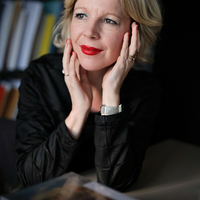Papers by Margaret Kamitsuka
Hypatia, Mar 8, 2024
Vulnerability is a notion discussed in feminist philosophy as a basis for a morality that widens ... more Vulnerability is a notion discussed in feminist philosophy as a basis for a morality that widens our sense of those whose deaths are grievable. Vulnerability and grievability also factor in reproductive ethics. This essay employs recognition theory to analyze critically how these notions are mobilized in conservative Christian anti-abortion writings and in feminist philosophy. This analysis exposes weaknesses and misrecognition in both sets of discourses. In response, I offer theological arguments for recognizing fetal value without implying a right to life and for acknowledging how human finitude and the precarity of pregnancy render gestational hospitality a discretionary, not obligatory, moral act.
Journal of Religious Ethics, 2021

Theology Today, 2021
This article looks at how two apparently unrelated issues—the afterlife and reproductive loss—tur... more This article looks at how two apparently unrelated issues—the afterlife and reproductive loss—turn out to be interrelated in complex theological and ethical ways. Eschatology is important to address, because how one thinks about resurrected bodies in the afterlife has implications for how one treats bodies that procreate in this life. Rethinking the notion of personhood lies at the heart of clarifying the nature of the resurrection. This article presents a theological anthropology that draws from the recent philosophical theory known as emergence. This theory allows us to conceptualize the resurrection of the “spiritual body” as a divinely initiated organic process that begins from a “bare seed” at death (1 Cor 15:44, 37). I hope to demonstrate that an emergence model of the resurrection both speaks to those grieving reproductive loss and also avoids eclipsing women’s exercise of moral discernment in reproductive matters.
Christianity and Literature, 2020
Journal of Religious Ethics, 2021

Journal of Feminist Studies in Religion, 2018
Abstract:This essay offers a theological answer to the question: How should we speak of a pregnan... more Abstract:This essay offers a theological answer to the question: How should we speak of a pregnant woman's identity such that she is recognizable as uniquely entitled to make the gestational choice to end fetal life? Some prochoice thinkers carve out ethical space for a pregnant woman to reject a fetus with which she has not yet self-consciously entered into a mothering relationship. In contrast, the author argues that pregnancy automatically places serious mothering responsibilities on a woman and that ending a life in utero is a unique decision that a gestating mother should have the primary moral authority to make. Since discourses of mothering in Christianized cultures are arguably influenced by the Virgin Mary, this essay offers a reading of the Annunciation in Luke's gospel and discusses one medieval mystic's transgressive practices of imitatio Mariae as resources for Christian women's reproductive choice about unwanted pregnancy today.

Religion and Gender, 2011
This essay explores how gender studies in academe, including in religious studies, might remain r... more This essay explores how gender studies in academe, including in religious studies, might remain relevant to ongoing feminist political engagement. I explore some specific dynamics of this challenge, using as my test case the issue of abortion in the US. After discussing how three formative feminist principles (women's experience as feminism's starting point, the personal is political, and identity politics) have shaped approaches to the abortion issue for feminist scholars in religion, I argue that ongoing critique, new theoretical perspectives, and attentiveness to subaltern voices are necessary for these foundational feminist principles to keep pace with fast-changing and complex societal dynamics relevant to women's struggles for reproductive health and justice. The essay concludes by proposing natality as a helpful concept for future feminist theological and ethical thinking on the subject.

Oxford Handbooks Online, 2014
This chapter presents important representative historical Roman Catholic and Protestant views abo... more This chapter presents important representative historical Roman Catholic and Protestant views about sexual pleasure from the New Testament period to the present day. The author describes two dominant themes in contemporary feminist, womanist, and queer theologies: sexual pleasure as sacred and God-given (Carter Heyward, Mary Hunt, Jane Grovijahn); and sexual pleasure as having justice-making potential vis-à-vis patriarchy and heteronormativity (Patricia Beattie Jung, Karen Baker-Fletcher, Kelly Brown Douglas, Marvin Ellison, Marcella Althaus-Reid). These theological views on sexual pleasure will be assessed in light of Michel Foucault’s and Judith Butler’s postmodern views on sexuality. The chapter surveys some topics for future theological reflection about sexual pleasure in relation to the following: postcolonialism, disability, ageing, sado-masochism, and transgender and intersex identities. The author offers a modest proposal in theological eschatology, arguing that reflecting o...
The Journal of Religion, 2004
... 43 Howe, p. 237. 4Judith Butler, Gender Trouble: Feminism and the Subversion of Identity (New... more ... 43 Howe, p. 237. 4Judith Butler, Gender Trouble: Feminism and the Subversion of Identity (New York: Routledge, 1990), p. 23. For current debates on Butler's views, see Sara Salih, Judith Butler (London and New York: Routledge, 2001), esp. pp. ...
Books by Margaret Kamitsuka
Bloomsbury, 2023
This volume introduces students to the history of cultural and theological responses to abortion ... more This volume introduces students to the history of cultural and theological responses to abortion as background for understanding a diversity of ethical positions in contemporary Christian, Jewish, and Muslim writings. Co-editors: Rebecca Todd Peters and Margaret D. Kamitsuka
Westminster John Knox, 2019
This book provides an updated and comprehensive discussion of abortion that supplies a counterarg... more This book provides an updated and comprehensive discussion of abortion that supplies a counterargument to prolife religious claims, speaks to the burdens of pregnancy, and attempts to alleviate the stigma of abortion that is felt by many women globally who self-identify as Christian.
Fortress Press, 2023
The afterlife continues to influence Christian faith and is a concern during fragile moments of r... more The afterlife continues to influence Christian faith and is a concern during fragile moments of reproductive loss. However, a doctrine of resurrection that speaks to death in the womb has yet to be considered.
Ignoring fetal death began early in Christian history. The church has struggled for settled meaning regarding issues of personhood in the womb and whether unbaptized infants are saved. Believers today deserve to know the basis for a Christian hope of heaven. They deserve a nontoxic eschatology that sustains an embodied sense of self, which is fractured by the experience of reproductive loss. They deserve to know whether assenting to the resurrection of the body–including unborn bodies–requires them to sacrifice their reproductive self-determination.

Feminist Theology and the Challenge of Difference, 2007
How can we respect the irreducible diversity of women's experiences and unmask entrenched for... more How can we respect the irreducible diversity of women's experiences and unmask entrenched forms of privilege in feminist theological discourse? This book offers proposals on how to address the challenge of difference for constructive theological purposes. Toward this end, the objective of this book is three-fold: 1) to make the case for why ongoing attentiveness to differences of race and sexuality is needed in order to avoid the imposition of white racial privilege and heterosexual privilege; 2) to make creative use of poststructuralism principally (Judith Butler, Michel Foucault), but also postcolonial, queer, and other theoretical resources in order to complicate our understanding of embodied selfhood, moral agency, and empowerment; and 3) to make constructive proposals in light of those theories on methodological issues (e.g., appeals to women's experience, to the erotic, or to women's solidarity), on hermeneutical issues (e.g., white feminist uses of the literature ...
T&T Clark Reader in Abortion and Religion











Uploads
Papers by Margaret Kamitsuka
Books by Margaret Kamitsuka
Ignoring fetal death began early in Christian history. The church has struggled for settled meaning regarding issues of personhood in the womb and whether unbaptized infants are saved. Believers today deserve to know the basis for a Christian hope of heaven. They deserve a nontoxic eschatology that sustains an embodied sense of self, which is fractured by the experience of reproductive loss. They deserve to know whether assenting to the resurrection of the body–including unborn bodies–requires them to sacrifice their reproductive self-determination.
Ignoring fetal death began early in Christian history. The church has struggled for settled meaning regarding issues of personhood in the womb and whether unbaptized infants are saved. Believers today deserve to know the basis for a Christian hope of heaven. They deserve a nontoxic eschatology that sustains an embodied sense of self, which is fractured by the experience of reproductive loss. They deserve to know whether assenting to the resurrection of the body–including unborn bodies–requires them to sacrifice their reproductive self-determination.